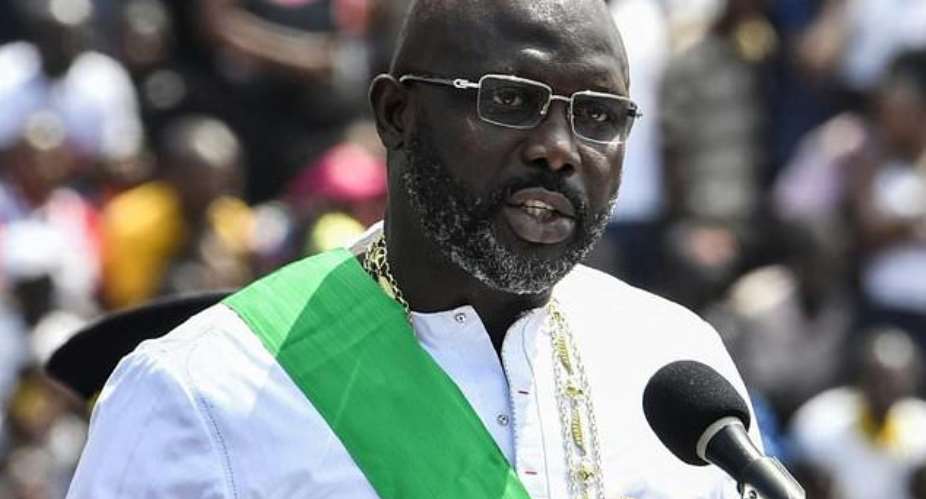In looking at causes and indicators, Robert I. Rotberg once categorized dysfunctional countries as Failed States, Collapsed States, and the Weak States. All things considered, Liberia fits all these categorizations given its past and present realities. According to Rotberg, “nation-states fail because they are convulsed by internal violence and can no longer deliver positive political goods to their inhabitants. Their governments lose legitimacy, and the very nature of the nation-state itself becomes illegitimate in the eyes and in the hearts of a growing plurality of its citizens."
Liberia is a nation of explicit and implicit internal violence––from a brutal decade-long civil conflict to an unceasing period of organized, endemic and systemic corruption, bad governance and economic mismanagement.
According to the Economist Magazine, "state failure causes untold misery and it is the main reason poor countries are poor. Its chief cause is not geography, climate or culture, but politics. Some countries build benign, efficient institutions that foster economic growth; others build predatory ones that retard it."
Liberia is an extreme and typical example of predation. Its politics consist of greedy and corrupt politicians, bureaucrats and cronies fighting over elected positions and government jobs to loot. Liberia makes Big Men and Big Women rich while ordinary folks live on food aid and international assistance from donors’ nations.
While in the opposition for 12 years, His Excellency George Manneh Weah spoke passionately about ending corruption and Fixing Liberia––a Failed State, Collapsed State and Weak State. Now, Mr. Weah can follow his own advocacy and passion. He is the democratically elected president of Liberia, a state that failed, collapsed and became weak in the 1990s and disproportionately looted from 1990 to January 22, 2018.
Liberia under President Weah must overcome several hurdles to avoid failing again because no matter how much international development support and relief assistance Liberia receives from donor countries, there is one lesson it needs to learn— a good government cannot be imposed from outside. Liberia’s national leaders must want it and work for it by overcoming stiff resistance from corrupt politicians and economic criminals.
President Weah has the right patriotism and love for Liberia and the Liberian people but does that translate into having the right priorities. To succeed, he must first establish a degree of trust and confidence in the institutions of government in Liberia. Second, he must ensure that his “pro-poor agenda” is realistic, measurable, and perceptible such that Liberians can benefit from job creation, reasonable wages and better working conditions, improved living standards as well as gaining access to healthcare, affordable and advanced educational opportunities, electricity and better road network. Next, his administration must try to entrench the rule of law and respect for human rights. All these would require improving the country’s tax collection and seek to curb corruption in all areas.
None of these actions will be easy or succeed if the Weah team or administration does not want them to. From the excessive degree of widespread corruption and the astronomical salaries lavished on elected and appointed officials in the immediately preceding administration, it was apparent that officials of the immediate past government were not really interested in nation-building and economic recovery, so investors and donors had no one to really work with to ensure Liberia's economic recovery and social advancement. But with the new government of President Weah in Liberia, they do. President Weah and his administration must therefore seize this opportunity to change Liberia for the better.
About the Author:
Jones Nhinson Williams is a Liberian philosopher (born in Pleebo, Maryland County but hailed from River Gee County) firmly educated by the Catholic Church. He is an American trained public policy, labor market information, strategic management, and workforce development professional with accomplished global experience in job creation and institutional governance.





 We’ll protect state wealth from opaque deals – Prof Jane Naana
We’ll protect state wealth from opaque deals – Prof Jane Naana
 Mauritania president says running for second term in June polls
Mauritania president says running for second term in June polls
 I won't ever say I was a mere driver’s mate' — Prof. Opoku-Agyemang
I won't ever say I was a mere driver’s mate' — Prof. Opoku-Agyemang
 2024 polls: 'EC struggling to defend credibility'— Prof. Opoku-Agyemang
2024 polls: 'EC struggling to defend credibility'— Prof. Opoku-Agyemang
 Akufo-Addo gov't's 'greed, unbridled arrogance, unrestrained impunity, sheer dis...
Akufo-Addo gov't's 'greed, unbridled arrogance, unrestrained impunity, sheer dis...
 Election 2024: Ghana needs an urgent reset, a leadership that is inspiring – Ma...
Election 2024: Ghana needs an urgent reset, a leadership that is inspiring – Ma...
 Partner NDC to rollout a future of limitless prospects – Prof Jane Naana Opoku-A...
Partner NDC to rollout a future of limitless prospects – Prof Jane Naana Opoku-A...
 NPP will remain in gov’t till Jesus comes — Diana Asamoah
NPP will remain in gov’t till Jesus comes — Diana Asamoah
 Sunyani Technical University demands apology from former SRC president over sex-...
Sunyani Technical University demands apology from former SRC president over sex-...
 'Dumsor' was resolved by Mahama but ‘incompetent' Akufo-Addo has destroyed the g...
'Dumsor' was resolved by Mahama but ‘incompetent' Akufo-Addo has destroyed the g...
